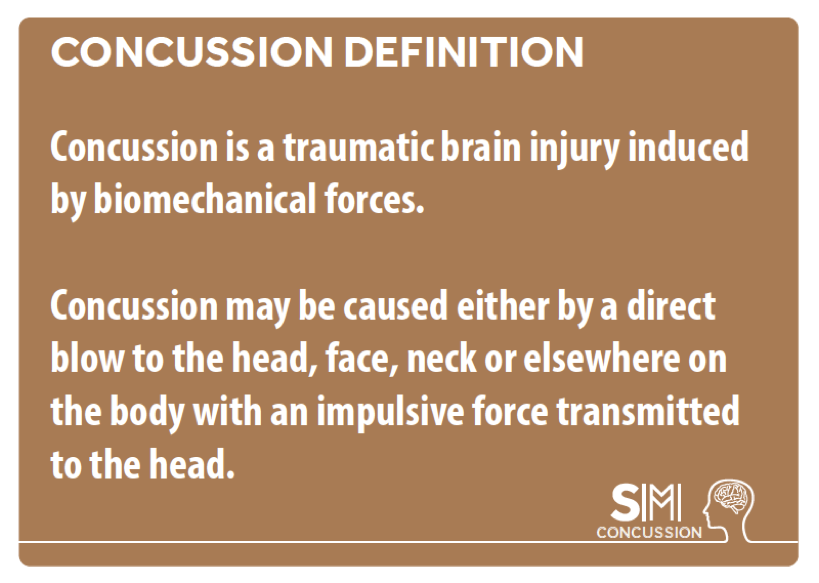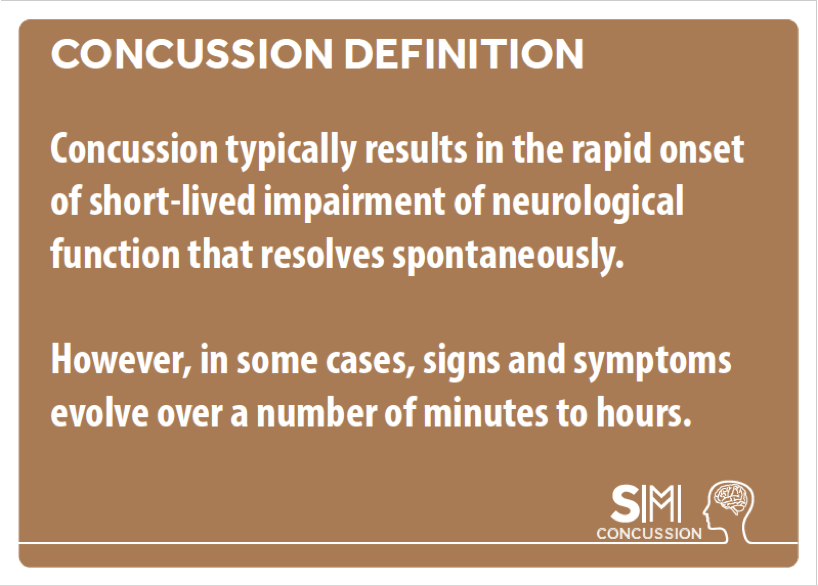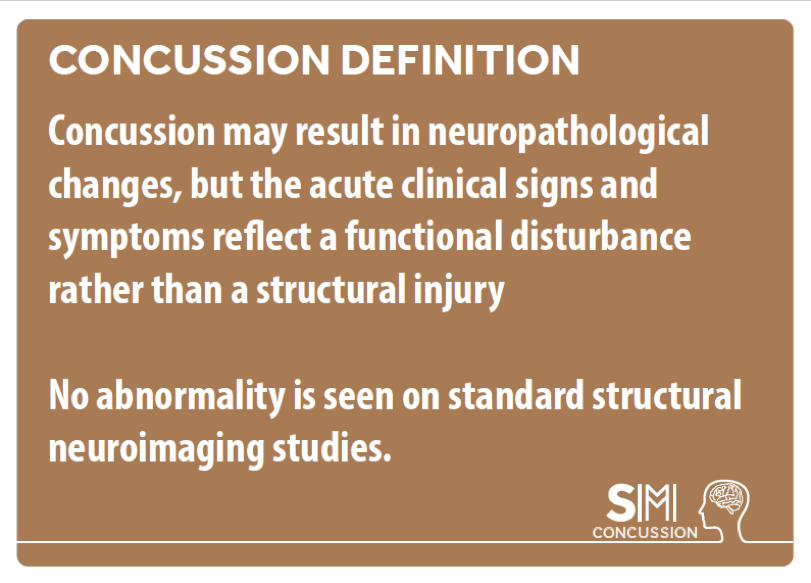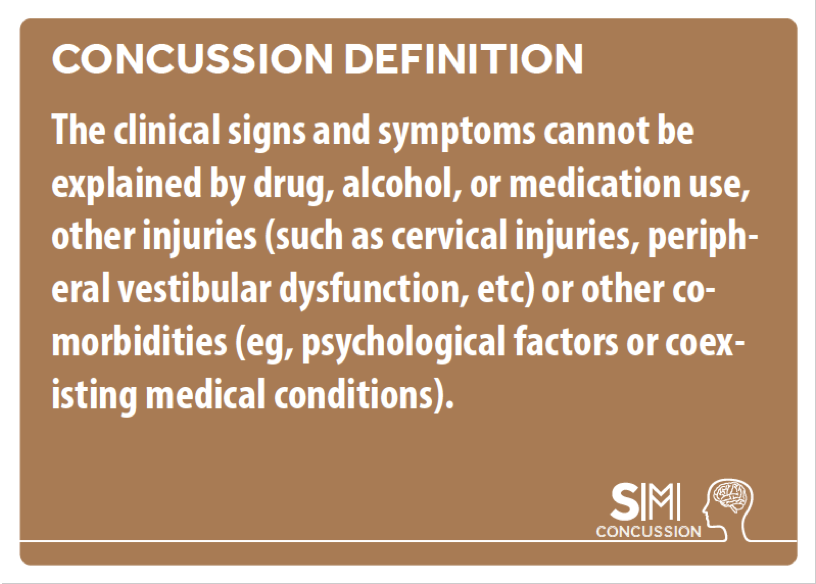At Sports Medicine NI (SMNI) we run a specialised concussion clinic. Here we encounter individuals at various stages in their concussion journey. Some will have sustained a recent head injury and others may be months or even years into symptoms with no significant resolution. Over the next few blog posts, we will give an overview of some of the basics of concussion and our management approach at SMNI.
Concussion Definition
We will start at the very beginning. What is a concussion?
There are a number of misconceptions about what a concussion is and how it happens. To clear these up, we need to go back to the most recent definition of concussion produced by the Concussion in Sport Group and published in the 2016 Consensus Statement on Concussion in Sport.

Do I only get a concussion from a blow to the head?
Concussion is a traumatic injury to the brain induced by biomechanical forces. This means that there has to be some sort of force applied to the brain before a concussion can occur. Concussion can be caused either by a direct hit to the head, face or neck, however it may also occur as a result of an impact elsewhere on the body that causes a force to be transmitted to the head.
So… you don’t necessarily have to be hit on the head to sustain a concussion – you can be hit hard anywhere on the body and the force transmitted to the brain, leading to the development of the symptoms of concussion.

How quickly will symptoms occur?
Concussion is typically a rapid-onset and short-lived impairment of neurological function in the brain which recovers spontaneously. Usually, the symptoms and signs of concussion occur almost immediately, within a few seconds or minutes. In some cases however; symptoms may take up to 72 hours to present.
That is why an individual should be monitored for a potential concussion, if the mechanism is suggestive, for up to 72 hours before it can be stated definitively that no concussion has occurred.

What imaging techniques will show a concussion?
Concussion results in neuro-pathological changes within the brain. These changes normally effect how the brain functions, rather than causing detectable damage to the brain’s structure.
Should an injury occur that causes detectable (on MRI or CT scan) damage to the structure of the brain, this is not a concussion. An MRI scan or CT scan of the brain, by definition, should be completely normal in a concussion. Newer forms of imaging, currently used in research only, such as functional MRI scanning, may show some abnormalities but have not been developed to the stage where they are useful in routine medical practice.
Can other conditions present similarly to concussion?
The signs and symptoms of concussion can often overlap with other conditions such as mood disturbance, injuries to the neck (cervical spine) or balance (vestibular system).
It is important that a complete evaluation of other possible contributing factors and over-lapping conditions takes place to make a definitive diagnosis and identify the most appropriate treatment.
Next post…
In the next blog post, we will go on to look at some of the signs and symptoms that may occur in someone who has sustained a concussion.
What can you do if you think you may have had a concussion?
If you have sustained a concussion, are unsure what to do next and would like more advice, please get contact us here at Sports Medicine NI.